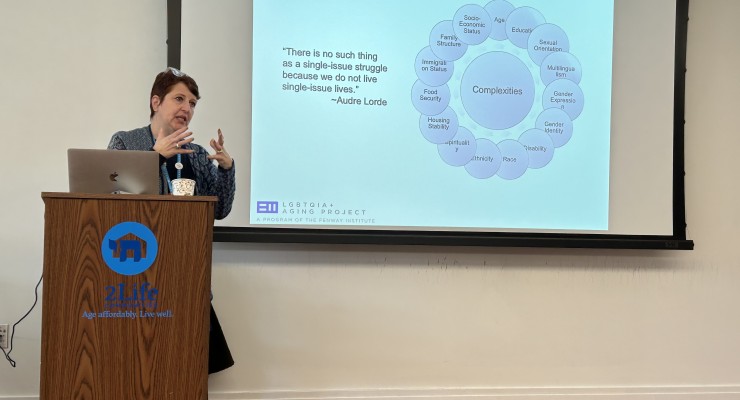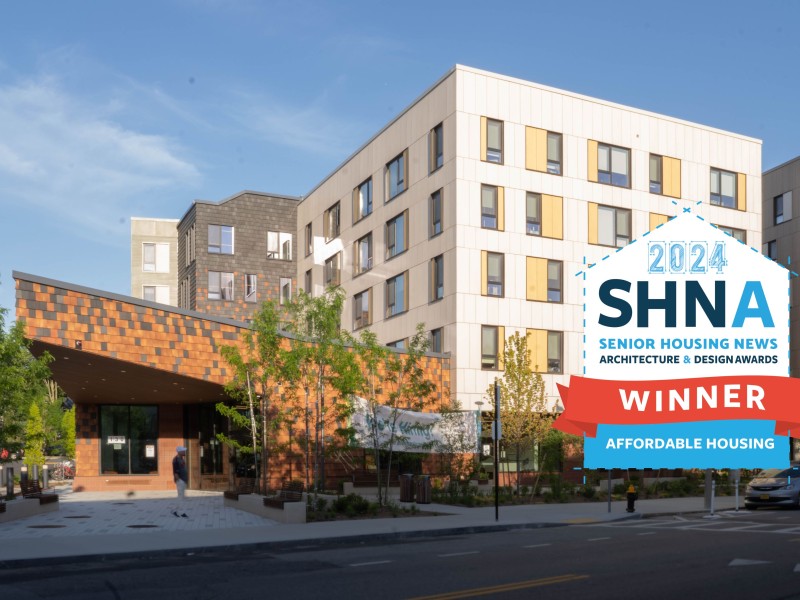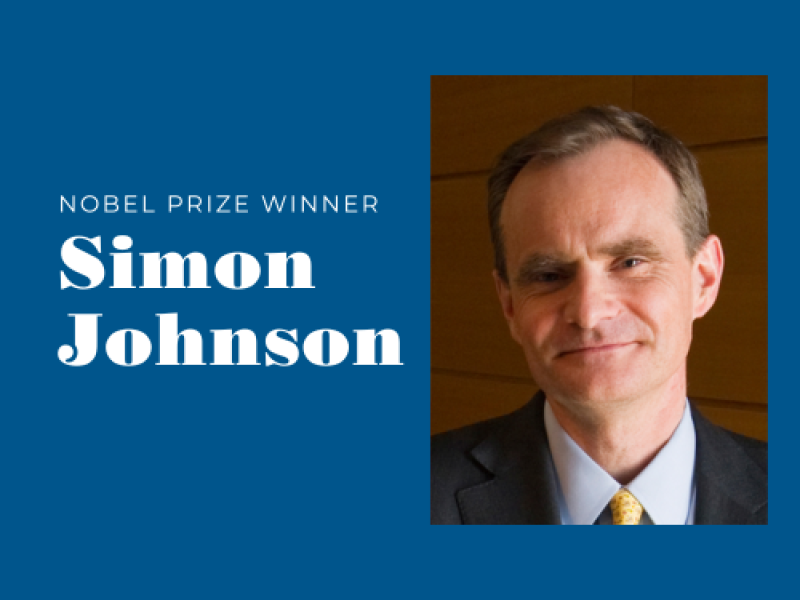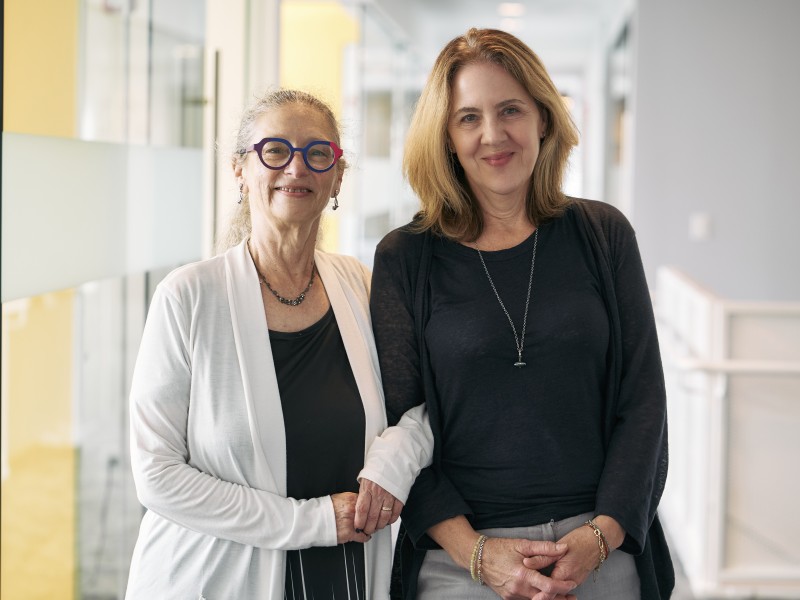Creating welcoming and inclusive housing for LGBTQIA+ older adults

On February 6, 2Life Communities was delighted to host a staff training session entitled, “Best Practices for Creating Welcoming and Inclusive Housing for LGBTQIA+ Older Adults at 2Life.” The session’s guest speaker was Lisa Krinsky, MSW, LICSW, Director of The LGBTQIA+ Aging Project (a program of the Fenway Institute at Fenway Health), whose goal was to build cultural competency for participants in relating to LGBTQIA+ older adults, both in general and specifically in regard to housing.
The LGBTQIA+ Aging Project works toward equity, inclusion, and community for LGBTQIA+ older adults, ensuring that they can age with the dignity and respect they deserve. The Aging Project is the premier resource in New England advocating specifically for LGBTQIA+ older adults. It is the “go to” place for organizations looking for training and technical assistance as well as individuals seeking connection and support. Since 2004, the Aging Project has trained over 10,000 elder service providers and staff in affirming and culturally competent care, supported development of LGBTQIA+ friendly community programs, educated healthcare professionals on the unique needs of LGBTQIA+ older adults, and advanced LGBTQIA+ equality in local and national aging policy.
An engaging expert on a fascinating topic, Krinsky shared research findings, insights, and best practices for both individuals and organizations, as well as many resources throughout the session.
Key takeaways included the following:
- Three generations exist in the 50+ category: the Greatest Generation (born 1901-1927), the Silent Generation (born 1928-1945), and Baby Boomers (born 1946-1964). The life experiences of each can be vastly different and are important to understand and appreciate, although gathering LGBTQIA+ data to inform studies has historically been overlooked. An individual’s chronological life, developmental life, and LGBTQIA+ experiences all combine to form their life journey and whether they feel silenced or open about their identity.
- Language is ever evolving. Broader exposure to concepts around gender includes terms that may be unfamiliar to older adults: for example, transgender, people who do not identify with their sex assigned at birth; non-binary, people who do not identify their gender as totally male or totally female; and cisgender, people who identify with the sex they were assigned at birth. The term “queer,” often used as a pejorative in the past, has been reclaimed by the LGBTQIA+ community as a less-defined umbrella term for not heterosexual and not cisgender. However, for older adults it may not resonate. Participants were advised to stay current with preferred language usage, and be attentive to the preferences of those with whom they are communicating.
- Aging issues in general are LGBTQIA+ aging issues. What changes, however, is the amount of support LGBTQIA+ seniors have available to them. Families of origin may no longer be in the picture, faith groups or the local community in general may not be welcoming, social networks are smaller, children and grandchildren may not exist. This places a heavier burden on housing and health supports to fill in the gaps.
- A building that is designated as LGBTQIA+ Friendly means that its very foundation is built on the commitment to creating a truly welcoming and inclusive environment where not only LGBTQIA+ older adults but people from all walks of life can live in a safe, welcoming supportive environment free from harassment and discrimination.
To learn more, below are links to many of the resources Krinsky shared:
- The LGBTQIA+ Aging Project offers excellent programs for LGBTQIA+ older adults, such as a bereavement group, a weekly Zoom drop-in social group, and a compendium of LGBTQIA+ community programs occurring across Massachusetts. Follow this link to the most current list of programs; new members are always welcome.
- Fenway Health advocates for and delivers innovative, equitable, accessible healthcare, supportive services, and transformative research and education. The organization centers LGBTQIA+ people, BIPOC individuals, and other underserved communities to enable its local, national, and global neighbors to flourish.
- The National Resource Center on LGBTQ+ Aging is the country’s first and only technical assistance resource center focused on improving the quality of services and supports offered to lesbian, gay, bisexual, and/or transgender older adults, their families and caregivers.
- The mission of LGBTQ+ Elders of Color is to conduct outreach to lesbian, gay, bisexual, and transgender older adults of color in the Boston area for the purpose of building community through social engagement events, creative programming, and providing needed resources for healthcare and aging services.
- LGBTQ Senior Housing’s mission is to facilitate access to welcoming, safe, and affordable housing for low-income LGBTQ seniors, including through a formal role in the development of such housing; to define onsite housing services and programming that addresses the needs of LGBTQ seniors; and to support community space to serve seniors in the Greater Boston community. Lottery is now open until February 22, 2024, for The Pryde, renovation of the former Rogers School in Hyde Park that will feature 74 units — a mix of studio, one-bedroom, and two-bedroom independent living apartments — where LGBTQ seniors over age 62 can age as their whole selves, with dignity and compassion.
- The History Project is focused exclusively on documenting and preserving the history of New England’s LGBTQ communities and sharing that history with LGBTQ individuals, organizations, allies, and the public. The History Project is a community archive — a repository, historical society, and museum for the LGBTQ+ community's history.
- The 13th annual LGBTQ+ Elders in an Ever-Changing World conference will be held virtually on Thursday, June 20, 2024. This year’s theme is “Bridges to Belonging: Fostering Inclusivity and Identity in LGBTQ+ Aging.” The conference will focus on interdisciplinary practice and community engagement for people working with lesbian, gay, bisexual, transgender, queer/questioning + older adults, and caregivers. LGBTQ+ people interested in their own aging or caregiving needs are invited to attend. (CEUs available.)
- “To Survive on This Shore” is an amazing collection of photographs and Interviews with transgender and gender-nonconforming older adults, assembled by Jess T. Dugan and Vanessa Fabbre. It is a digital experience, a book, and an exhibition and should not be missed.
2Life Communities strives to offer a welcoming and inclusive community at all 2Life properties. Our practice (informed by knowledge) continues to evolve, and our goal is always to exemplify best practices.


